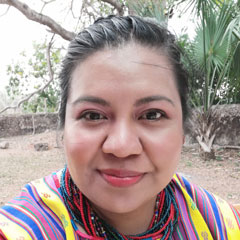Photos courtesy of United Nations Population Fund Mexico
Graciela Freyermuth, David Melendez, and Hilda Argüello of Asesoría, Capacitación y Asistencia en Salud, A.C. (ACASAC) write about how women’s movements and organized civil society in Mexico have advanced a policy agenda for the health sector.
Since the 1990s, women’s health and rights movements and organized civil society in Mexico have created, implemented, and promoted a clear policy and political action agenda for the health sector.
Our demands have centered around quality health services for abortions, greater access to sexuality education and contraceptives for women, improving the quality of care to reduce maternal morbidity and mortality, and the legalization of abortion. This important work could not be carried out without the participation and leadership of women.
The United Nations Millennium Summit in 2000, which centered on human and women’s rights, made clear the consensus between governments to prioritize maternal healthcare. The Summit suggested that maternal healthcare is a human right. The challenge has been putting this into practice. While human rights provide us with a powerful focus for action, without the ability to institutionalize those rights, the status quo does not change.
It has been difficult to make maternal healthcare a right because for decades there were no existing mechanisms for implementation, such as institutions, practices, trained personnel, accountability measures, or the political will of the Mexican government. We had the focus, the international treaties, and the legal frameworks, but there were no mechanisms that allowed citizens to access the rights granted to them in Mexico’s national and state-level constitutions and international agreements.
Beginning in the twenty-first century, we saw success in the work toward institutional accountability. In 2010, we inaugurated the Maternal Mortality Observatory in Mexico, which monitors implementation of public policies and statistics. It allows us to see advances in maternal health.
The Maternal Mortality Observatory in Mexico has also carried out audits to identify concrete areas for improvement, from healthcare workers’ knowledge to indispensable supplies and medicines to proposing simple and replicable methodologies. It has produced results in Mexico such as: the paradigm shift from a focus on risk management in maternal care to obstetric emergency care, providing free obstetric care, and publishing maternal mortality statistics that allow us to monitor state- and national-level trends.
Today we find ourselves facing an uncertain horizon due to the restructuring of Mexico’s public institutions. Some of the autonomous bodies that have created accountability and transparency are now at risk, including attempts to dissolve the National Access to Information Institute. Victims, collectives, and civil society organizations occupied the offices of the National Human Rights Commission in a desperate act to combat the weakening of state institutions.
We are at a decisive moment where we must build the movement’s strength and work more collaboratively than ever before in order to fight setbacks and accelerate progress towards maternal health as a human right and a chosen, safe, and joyful motherhood.






